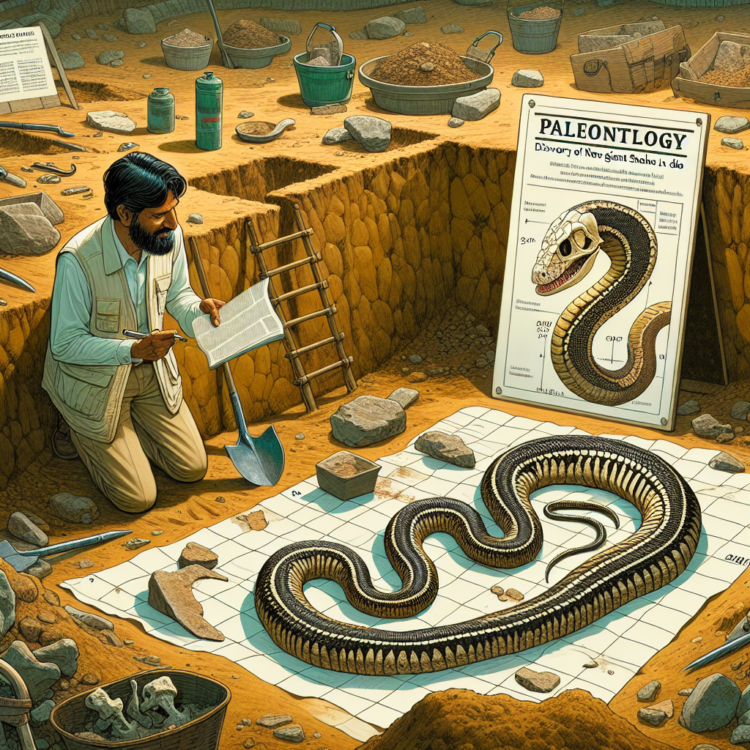A new ancient species of snake dubbed Vasuki Indicus, which lived around 47 million years ago in the state of Gujarat in India, may have been one of the largest snakes to have ever lived, suggests new research published in Scientific Reports. The new species, which reached an estimated length of between 11 and 15 metres, was part of the now extinct madtsoiidae snake family, but represented a distinct lineage that originated in India.
A new ancient species of snake dubbed Vasuki Indicus, which lived around 47 million years ago in the state of Gujarat in India, may have been one of the largest snakes to have ever lived, suggests new research published in Scientific Reports. The new species, which reached an estimated length of between 11 and 15 metres, was part of the now extinct madtsoiidae snake family, but represented a distinct lineage that originated in India.
Debajit Datta and Sunil Bajpai describe a new specimen recovered from the Panandhro Lignite Mine, Kutch, Gujarat State, India, which dates to the Middle Eocene period, approximately 47 million years ago. The new species is named Vasuki Indicus after the mythical snake round the neck of the Hindu deity Shiva and in reference to its country of discovery, India. The authors describe 27 mostly well-preserved vertebra, some of which are articulated, which appear to be from a fully-grown animal.
The vertebrae measure between 37.5 and 62.7 millimetres in length and 62.4 and 111.4 millimetres in width, suggesting a broad, cylindrical body. Extrapolating from this, the authors estimate that V. Indicus may have reached between 10.9 and 15.2 metres in length. This is comparable in size to the longest known snake to have ever lived, the extinct Titanoboa, although the authors highlight the uncertainty around these estimates. They further speculate that V. Indicus’s large size made it a slow-moving, ambush predator akin to an anaconda.
The authors identify V. Indicus as belonging to the madtsoiidae family, which existed for around 100 million years from the Late Cretaceous to the Late Pleistocene and lived in a broad geographical range including Africa, Europe, and India. They suggest that V. Indicus represents a lineage of large madtsoiids that originated in the Indian subcontinent and spread via southern Europe to Africa during the Eocene, approximately 56 to 34 million years ago.
Journal
Scientific Reports
Article Title
Largest known madtsoiid snake from warm Eocene period of India suggests intercontinental Gondwana dispersal
Article Publication Date
18-Apr-2024
COI Statement
The authors declare no competing interests.




